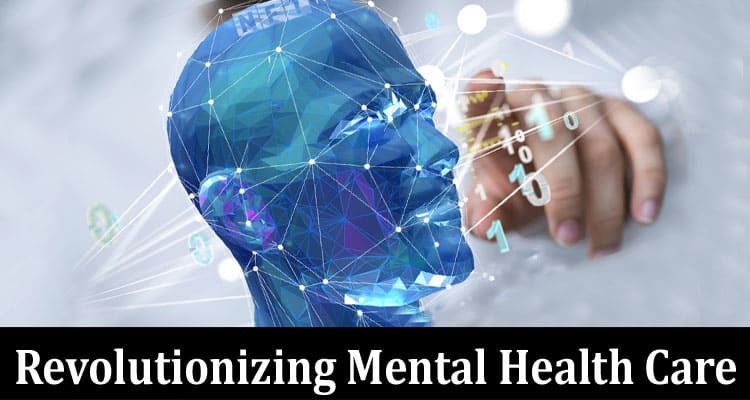In an era marked by rapid technological advancements, it comes as no surprise that the field of mental health care is undergoing a transformative evolution. From innovative therapeutic tools to enhanced accessibility, technology is revolutionizing the way mental health care is delivered, making it more effective, efficient, and inclusive. This essay explores the ways in which technology is changing mental health care and its implications for individuals and society.
1. Enhanced Accessibility and Convenience:
One of the most significant ways technology is changing mental health care is by increasing its accessibility. With the rise of telehealth platforms, individuals can now receive counseling and therapy from the comfort of their own homes. This is particularly beneficial for those who live in remote areas, have mobility challenges, or face social stigmas that may discourage seeking in-person care.
2. Mobile Apps and Digital Platforms:
Mobile applications and digital platforms have become instrumental in providing tools for managing mental health. These apps offer features like mood tracking, guided meditation, cognitive behavioral therapy exercises, and relaxation techniques. Users can access these resources at any time, fostering a sense of empowerment and control over their mental well-being.
3. Data-Driven Insights:
Technology allows mental health professionals to collect and analyze data more comprehensively, providing insights into individual and population-level mental health trends. This data-driven approach enables personalized treatment plans and interventions based on an individual’s needs and preferences.
4. Online Support Communities:
Social media and online forums have facilitated the creation of virtual support communities. These platforms connect individuals who share similar experiences, fostering a sense of belonging and reducing feelings of isolation. Such communities offer a space for people to share their challenges, triumphs, and coping strategies.
5. Artificial Intelligence (AI) and Machine Learning:
AI and machine learning are being harnessed to enhance diagnostics and treatment planning. These technologies can analyze vast amounts of data to identify patterns and predict potential mental health issues. They also support mental health professionals in offering more accurate diagnoses and personalized interventions.
6. Virtual Reality (VR) Therapy:
Virtual reality technology has opened up new possibilities in exposure therapy for conditions like phobias, post-traumatic stress disorder (PTSD), and anxiety disorders. Patients can be exposed to controlled virtual environments that trigger their anxieties, providing a safe and supervised setting for therapeutic interventions.
7. Online Therapy Platforms:
Online therapy platforms connect individuals with licensed mental health professionals through secure video conferencing. These platforms offer convenience and privacy while maintaining the therapeutic relationship that is crucial for effective counseling.
8. Crisis Support and Intervention:
Crisis intervention hotlines and text messaging services are leveraging technology to provide immediate support to individuals in distress. These services offer a lifeline to those in need, ensuring timely assistance and preventing potential harm.
Challenges and Considerations:
While the integration of technology in mental health care holds immense promise, there are also challenges that must be navigated:
- Ethical Concerns: Privacy and confidentiality must be maintained in the digital realm. Ensuring the security of sensitive patient data is paramount.
- Equity and Accessibility: While technology increases accessibility for many, it may also create disparities for those who lack access to smartphones, reliable internet, or technological literacy.
- Quality Assurance: Not all mental health apps or online platforms are created equal. It’s important to ensure that technology-based interventions are evidence-based and clinically effective.
- Human Connection: While technology can supplement mental health care, the importance of human connection and rapport between clients and therapists remains crucial.
In Summary
The integration of technology into mental health care has ushered in a new era of possibilities, empowering individuals to take charge of their mental well-being and breaking down barriers to access. From online therapy platforms to AI-driven interventions, the landscape of mental health care is being reshaped by innovation. However, it’s important to strike a balance between the benefits of technology and the human touch that defines effective mental health support. As technology continues to evolve, mental health care must evolve with it, leveraging its potential to create a more inclusive, effective, and compassionate approach to mental well-being.


